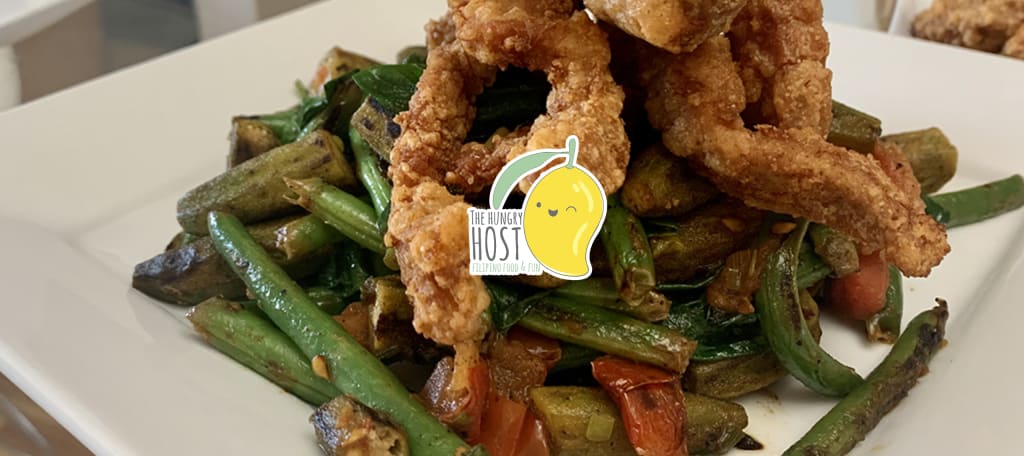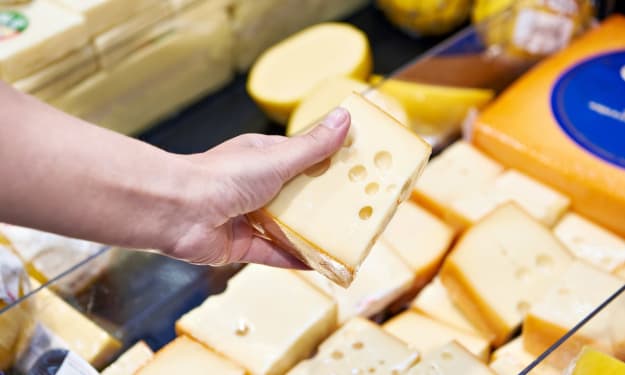
We are not always who you think we should be.
We've risen from the sacrifices of our parents and grandparents to occupy roles other than nanny or nurse. We don't swap our Vs for Bs or Fs for Ps when we speak. We chafe against our collectivist culture while we search for imported ingredients to recreate ancestral recipes. We're called coconuts or bananas by our first generation cousins while we brush off racial micro-aggressions from co-workers or the occasional spit-filled scream of "Go back to Asia!"

There are 12 million of us around the world. But as the second, third, or fourth generation of Filipino immigrants, we feel like we are living in between two worlds.
So, sometimes, we are not even sure who we think we should be.
Passion for Progress
I first created my food blog on a whim. The name "The Hungry Host" stuck because I am always hungry, and I like to host. At first, I posted about anything and everything that was the least bit interesting to me. Want a review of a hole in the wall restaurant in a small town you'll never visit? I got you. Or do you want a recipe for a tried and true crowd-pleasing recipe? I got that too.
But as the years passed and our family grew, I became more and more sensitive to my cultural identity and what I wanted to teach my young children. I began to explore my Philippine heritage, experimenting with recipes that blend traditional flavours with North American tools and ingredients and by collecting information about our language, history, culture, values, and mythology. I redesigned and restarted my blog to reflect this new focus.
"But why?" you may ask.
Well, as children, we were encouraged to be quiet, to work harder than anyone else, and to silently succeed as a response to real or perceived racism. But as marginalization exploded into anti-Asian violence in recent months, I have found strength and inspiration to raise my voice by sharing pieces of myself, including recipes on my blog, history bits on TikTok, photos on Instagram, and community awareness on YouTube.
When I share a recipe for mung bean tortilla wraps or for adobo chicken rice paper rolls, I am acknowledging what we all already know. Just because we take pride in our heritage, it doesn't mean we deny the multicultural impact of living in North America. We are all looking for simplified, one-minute lessons on how to take the best of our culture and make it accessible to a wider audience. Why perpetuate the myth that authentic equals traditional, especially when faced with evolving cultures?
When I share a recipe for the Philippine national soup that unapologetically uses a slow cooker and local produce, or when I highlight North American Filipinos who use ethnic fabric and patterns in non-traditional clothing styles, I am carving out a space for the children of the Philippine diaspora. Our community seems simultaneously ashamed of our North American qualities and disconnected from our Filipino roots. I want my online community to embrace the evolution of our culture, and to stop apologizing for who we are not; instead, I want to celebrate who we are and can be.
I was born here, but there's more to me than my place of birth. And I want to provide my children and the children of others with the tools to promote North American Filipino culture.
Fusion Food and Culture
I am grateful to have grown up in a multicultural neighbourhood, where I sat in the kitchens of aunties and grandmothers from all over the world. My goal is to create an online neighbourhood through my website and social media presence, where people can come to try Filipino fusion recipes, get recommendations on trending Filipino-American products, learn about our history, language, and culture, or connect with community.
Recipes: My main focus has been writing Filipino recipes with a North American twist. Whether it's swapping out ingredients due to availability or using a new method (hello, air fryer?) or mashing up Filipino and North American flavours, I explore ways to reinvent traditional cooking.
Culture: I am currently developing several series of videos and interactive activities for deployment on my blog, YouTube channel, and TikTok account. These series promote Filipino culture through the lens of a second generation immigrant. This will provide a non-judgemental platform for Filipino North Americans to learn about and connect with their heritage. Here are some examples:
- Mythology and superstition: We have a rich and rather gruesome pantheon of gods and monsters, as well as a slew of practices steeped in superstition. Each video will highlight a god, monster, or superstition and explain its practice and relevance in Filipino life on the islands and abroad.
- Filipino American creators: Communities thrive on connection, and Filipinos love to support other Filipinos. The trouble is that we don't always know what others are up to. So I want to make compilation lists and videos of North American Filipino content creators, small businesses, and artisans. The excitement surrounding the release of any Filipino media is HUGE (whether it be a food cameo in Raya and the Last Dragon or a half-Filipino singer making it big), so why not bring that to blog posts and videos?
- Language: Rosetta Stone has the monopoly on Tagalog lessons right now, but many of us learned a version of the language from subtitled series and movies. I want to take that a step further, and create instructional videos and worksheets that adults and children can use to boost their Filipino language skills (so that we can at least understand what every one is saying about us at family reunions).
- Other: Folk dance, history, and the intercultural spectrum are also important topics, which I would like to address with humour and practical lessons and tips. Want to learn how to use a ukelele to bash out the national anthem? Or learn the steps of our national dance, tinikling? Perhaps you want to understand the effect of colonization on our parents' perspectives? Maybe, you want to figure out why we always fight about sending money back to the Philippines? Well, I want to discuss all that and more.
People have started following me because I make Filipino cooking and culture accessible to everyone. Also I'd like to think that it doesn't hurt that I'm quirky-cute and slightly sarcastic. After all, I built my teaching career on self-deprecating humour.
Memberful and Me
In a perfect world, I would put my instructional design skills to use in the development of my subscription and pay-per-product website. While I strongly believe that the majority of my fusion recipes as well as my cultural short videos and compilation posts should always remain free, there are three areas which I would like to monetize.
Subscriptions: First and foremost, I want to monetize by offering a monthly and yearly subscription plan with three tiers of access. The basic membership plan would allow users to receive one exclusive recipe or worksheet per month. The next tier would give users access to unlimited recipe and worksheet downloads. The final tier would give users access to unlimited downloads and online courses.
Online Courses: Users can choose to pay per course or to pay for a subscription to have access to all the courses while their membership is active. Using a learning management system (LMS), I would create 6-10 lesson cooking, language, history, mythology, and culture courses. (For example: How to Cook 3 Traditional Dishes with North American Ingredients, 3 Drool-worthy Twists on Adobo, Bridging the Gap: Dealing with First Generation In-Laws) I would use competition funds to purchase development licenses and tools (LMS, Articulate 360, H5P), to provide honoria for subject matter experts, to consult with marketing, and to invest my time in working toward these goals. I would combine video instruction with interactive activities and simulations. Paid add-ons would include half-hour video consultations, assignment submission, and feedback.
Pay-per-download: If a user won't or can't commit to a subscription, I will offer a pay-per-download option. Users can pay a set price to download a PDF version of a recipe booklet or worksheet. Recipe booklets will be organized by theme or ingredient, and will include historical or cultural notes along with photos and detailed instructions and ingredient substitutions. Worksheets will have instructions and interactive activities. They will be aimed at adults and children, with the goal of promoting awareness and understanding of Filipino heritage.

Summary
Many Filipinos and descendants of Filipinos struggle with acknowledging and explaining their identity. We all want to belong, and we are who we are, even if others don't quite understand us. I'm passionate about creating a safe and respectful online space for self-discovery.
Membership required.
About the Creator
Linda M
Incorrigible daydreamer.






Comments
There are no comments for this story
Be the first to respond and start the conversation.